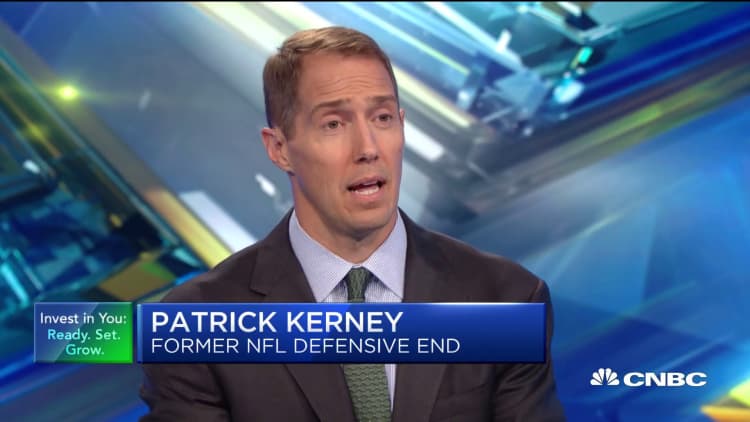
Former National Football League player Patrick Kerney told CNBC on Friday that he thinks college athletes deserve to be paid, but he offered up an alternative to salaries or endorsement deals.
"I think they should be paid, but in a deferred compensation package," Kerney said on "The Exchange." "Maybe contribute to a 401(k) for them, get them to understand the time value of money."
Kerney, who earned an MBA from Columbia University after 11 seasons in the NFL, is now principal of Kerney Insurance. He combines his two worlds by visiting NFL teams to help financially educate players.
Kerney said the payment should be uniform for all athletes and would serve a broader goal.
"I think it'd be valuable and a great introduction in getting them interested in how that money will work for them over the long term," said Kerney, a two-time Pro Bowl selection who played defensive end for the Atlanta Falcons and Seattle Seahawks. He retired after the 2009 season.
Kerney's remarks came in response to a question about legislation passed this month in California that allows college athletes in the state to profit off their name, image and likeness.
It is regarded a significant blow to the NCAA's system of amateurism. The organization, which reported $1.1 billion in revenue for 2017, has urged California Gov. Gavin Newsom to veto the bill.
The push to compensate athletes has increased as college sports has grown into the multibillion-dollar industry it is today.
In 2017, college sports programs brought in $14 billion in revenue, according to a report from Sen. Chris Murphy, a Democrat from Connecticut. That figure was $4 billion in 2003, according to the report, which is based on Department of Education data.
Kerney's suggestion that college athletes be compensated through a 401(k) mirrors the financial advice he gives to professional athletes. He said learning about the importance of saving for the future is critical. Kerney said he also encourages players to find a trusted financial advisor.
"I just want them to recognize early in their careers how to leverage this opportunity into what it really should be, historically for our fraternity and for them moving forward," Kerney said.


